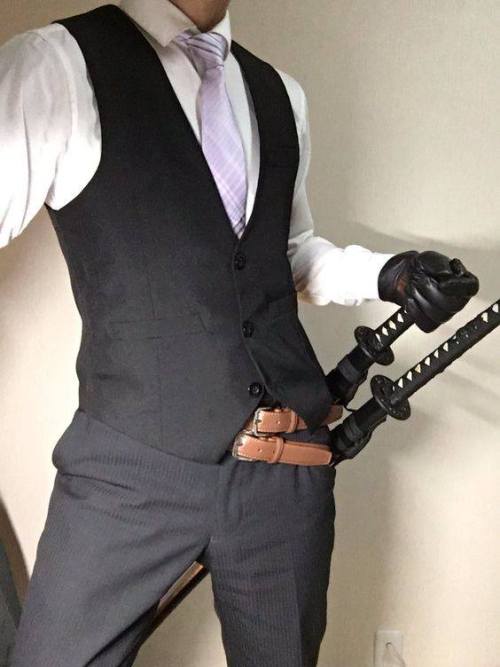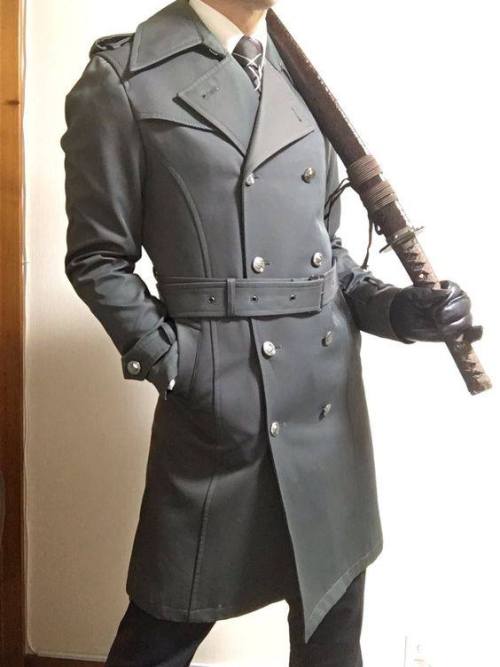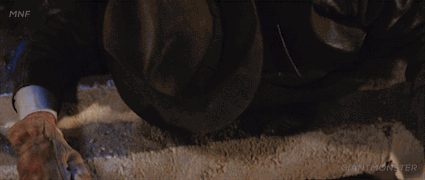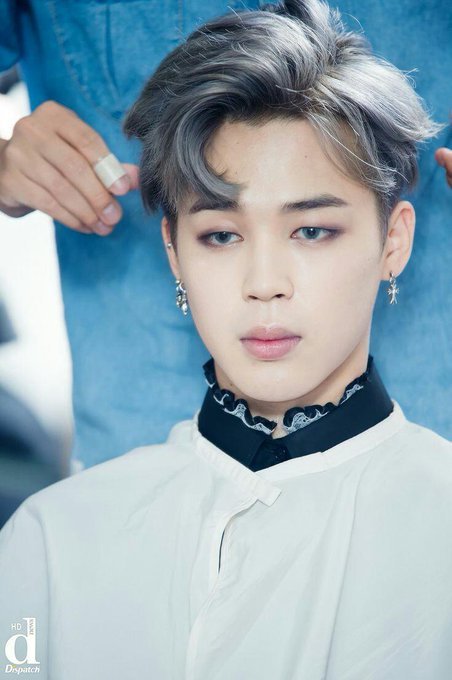Actually
Actually
The question I get the most is how I write characters that feel like real people.
Generally when I’m designing a human being, I deconstruct them into 7 major categories:
1. Primary Drive 2. Fear: Major and Secondary 3. Physical Desires 4. Style of self expression 5. How they express affection 6. What controls them (what they are weak for) 7. What part of them will change.
1. Primary Drive: This is generally related to the plot. What are their plot related goals? How are they pulling the plot forward? how do they make decisions? What do they think they’re doing and how do they justify doing it. 2. Fear: First, what is their deep fear? Abandonment? being consumed by power? etc. Second: tiny fears. Spiders. someone licking their neck. Small things that bother them. At least 4. 3. Physical desires. How they feel about touch. What is their perceived sexual/romantic orientation. Do their physical desires match up with their psychological desires.
4. Style of self expression: How they talk. Are they shy? Do they like to joke around and if so, how? Are they anxious or confident internally and how do they express that externally. What do words mean to them? More or less than actions? Does their socioeconomic background affect the way they present themselves socially? 5. How they express affection: Do they express affection through actions or words. Is expressing affection easy for them or not. How quickly do they open up to someone they like. Does their affection match up with their physical desires. how does the way they show their friends that they love them differ from how they show a potential love interest that they love them. is affection something they struggle with?
6. What controls them (what they are weak for): what are they almost entirely helpless against. What is something that influences them regardless of their own moral code. What– if driven to the end of the wire— would they reject sacrificing. What/who would they cut off their own finger for. What would they kill for, if pushed. What makes them want to curl up and never go outside again from pain. What makes them sink to their knees from weakness or relief. What would make them weep tears of joy regardless where they were and who they were in front of.
7. WHAT PART OF THEM WILL CHANGE: people develop over time. At least two of the above six categories will be altered by the storyline–either to an extreme or whittled down to nothing. When a person experiences trauma, their primary fear may change, or how they express affection may change, etc. By the time your book is over, they should have developed. And its important to decide which parts of them will be the ones that slowly get altered so you can work on monitoring it as you write. making it congruent with the plot instead of just a reaction to the plot.
That’s it.
But most of all, you have to treat this like you’re developing a human being. Not a “character” a living breathing person. When you talk, you use their voice. If you want them to say something and it doesn’t seem like (based on the seven characteristics above) that they would say it, what would they say instead?
If they must do something that’s forced by the plot, that they wouldn’t do based on their seven options, they can still do the thing, but how would they feel internally about doing it?
How do their seven characteristics meet/ meld with someone else’s seven and how will they change each other?
Once you can come up with all the answers to all of these questions, you begin to know your character like you’d know one of your friends. When you can place them in any AU and know how they would react.
They start to breathe.
More Posts from Risingstarling and Others
Can you do puppy stony
I fanlly complete it!


I’m very very very like Pomeranian much!
how can i make my characters empathetic?
Hey there, anon! Empathy is the ability to understand and share the feelings of others. I have two different ways to answer this: how to make your characters be empathetic and how to make people empathetic towards your characters.
HOW TO MAKE CHARACTERS BE EMPATHETIC
This one is pretty self-spoken for. There is really only one way that I know of to make a character to be empathetic and it’s to put them in a situation that the character feels sympathy for another or have them care about something and to, eventually, share the feelings of the other character.
This could be just about anything - get creative with it! For example, have someone be treated unjustly, someone be thrust into grief or danger, facing an inner struggle, etc.
HOW TO MAKE PEOPLE EMPATHETIC TOWARDS CHARACTERS
This is actually pretty easy and you can also just repeat the above tips and tricks if you’d like!
However, different examples - and remember to get creative with it - are having your character display a valuable trait (though this is typically more rewarding if done a little before they make a choice that has a negative impact).
In addition, people love to watch real talent. Have your character be particularly good at something but don’t just tell how good someone is with a knife; show us. Show us how long it took, how many hours of pain and getting injured they had to withstand. Show them caring for their knives as if they were children. Show not tell is a very important part here.
Have them wish for a universal change or show them caring for people. For example, wishing for world hunger to go away and helping starving people go hand in hand together. Wishing for equality and going to rallies for pride, black lives matter, etc, go hand in hand.
Give them something unique about them. Something that will make the reader grow some sort of attachment to them.
I hope this helped, anon, and if you have any additional questions, please come ask! Happy writings! x
- Mod Lilly
If you need advice on general writing or fanfiction, you should maybe ask us!










i dont get it
riverdale sucked so bad but caos really made me feel some type of way








Hand Tutorial -Tips+Reference- by =Qinni
Great hand tips by =Qinni! ^.^
It's nice to know even the unbelievably attractive people have these moments

This made my day.
Hey, you're awesome, thanks for existing, basically ^_^ Anyway, I wanted to know if you have any tips on how to write different personalities? My characters (all of them) always end up with the same default personality that I fall back on. Thanks!
Thanks for your question, darling! I think most of us have struggled with this – after all, we’re conditioned to one way of thinking, feeling, and acting for as long as we live. That doesn’t necessarily mean we write characters like ourselves, though. In fact, many of us have a “default character” that’s sassier than we are, sweeter than we are, or in some way different enough from us that we still feel like we’re writing a character.
The problem, then, isn’t that we can’t visualize a different personality than ours. On the whole, we can. What we’re missing are the small details that make it feel whole – otherwise, it’s like painting the same room six different colors and trying to pass it off as six different rooms. Different dominant traits can’t hide the fact that you’re working with one template!
So the question we’re left with: what are the traits we’re missing? And how can we change them to create a unique and whole personality?
Three Types of Character Traits
There are, as the title suggests, three major categories of personality traits as I see it: fundamental traits, acquired traits, and detrimental traits. A well-rounded character needs some of each to be three-dimensional and realistic.
Fundamental Traits
The fundamental traits of a person’s character are not as simple as interests and preferences; they are the very base of all decisions and desires. They are either learned in early life or developed over a long period of time, rooting deeply into the personality. A few examples of fundamental personality traits include:
Upbringing – The word choice here is conscious, as upbringing encompasses many different aspects of a person’s development. Consider who raised them, and with what morals and practices they were raised to adulthood. Consider their influences, both familial, social, and in media; consider the relationships that were normalized during their development, as well as the living conditions (financially, emotionally, environmentally, etc.). The people, places, emotions, and conflicts made common during a person’s developmental period are essential to their personality in adulthood. This is why psychologists often draw present-day problems back to a person’s childhood memories – because those formative years can subconsciously dictate so much of a person’s future!
Values – These may not coincide with the values a person is raised to hold, but upbringing certainly has an influence on this. A person’s values will direct the course of their life through every decision, large and small. You don’t need to outline everything your character believes is important – every moral and every law they agree/disagree with. But those values which stand above others will give your character purpose. A few of my favorite examples are: Jane from Jane the Virgin (whose initial storyline is heavily based on her religion and desire for a beautiful love story, as well as her childhood influences who inspired these values) and Han Solo from Star Wars (whose character development rested upon his values shifting from money and gratification to more honorable things).
Beliefs – Different from values, beliefs are a more general set of guidelines for how a person believes things are supposed to be. Beliefs can also be a source of great conflict, as a character tries to stay aligned with their beliefs despite other values or desires. These beliefs can be established systems, like religion or politics; they can also include more personal belief systems, like nihilism or veganism. A characters beliefs, like their values, can change over the course of the story – but even if a character is questioning one system of belief, like religion or pacifism, they should have other belief systems in place to govern some of their activity.
Reputation – A lot of human activity, whether consciously or not, is dictated by how others perceive them (or how they believe others perceive them). There are two types of reputation: personal and passing. For instance, a woman named Sally who gains a personal reputation of sleeping around will behave in reaction to this reputation – either sleeping around because everyone already expects it of her, or specifically not hooking up because she wants to shake this reputation, or developing a thicker skin to deal with the rumors until it passes. A man named Billy who, because of his tattoos, bears a passing reputation as an intimidating man will either try to soften his demeanor with strangers, own up to the image, or at least learn to expect judgment from strangers as a consequence.
Self-Image – Also relevant to a person’s behavior is the way they perceive themselves, which can often have little to do with their reputation. A lot of self-image is based on definitive moments or phases in the past. For instance: for several years after I started wearing contacts and cutting my hair, I still saw myself, in dreams at night, with long hair and glasses. One of my friends, similarly, could not seem to notice when boys would flirt with her during sophomore year – because she still saw herself as an awkward middle schooler with braces, and not as the charming cheerleader with the great smile.Inversely, self-image can be inflated, causing character to behave as though they are funnier, smarter, or more prepared than they truly are (see: the rest of my sophomore acquaintances). This can be an overlooked character flaw opportunity – or flawportunity…

Acquired Traits
Now we move on to the acquired traits of personality, which are the ones you’re more likely to find on a character sheet or a list of “10 Questions for Character Development”, alongside a million other things like their zodiac sign and their spirit animal. But the traits I’m about to outline are a little more relevant to a character’s behavior, and more importantly, how to make this behavior unique from other characters’ behavior. The following traits will be learned by your characters throughout their life (and their story), and are more likely to shift and grow with time:
Interests – I know, I had to reach deep down into my soul to think of this one. But it’s true! Interests, both in childhood/adolescence and in adulthood, are an important part of a character’s personality and lifestyle. Childhood interests both reveal something about the character (for instance: my nephew loves trains, Legos, and building, suggesting a future interest in construction or engineering) and create values that can last for a lifetime. Current interests affect career choice, social circles, and daily activity for everyone. Forgotten or rejected interests can be the source of pet peeves, fears, or bad memories. There’s a reason I’ll never play with Polly Pockets again, and it 100% has to do with bloody fingertips and a purse that wouldn’t open.
Sense of Humor – This can be a little hard to define, understandably. If you were to ask me what my sense of humor is, I’d probably start with a few stupid memes, pass by Drake & Josh on the way, and somehow wind up telling you bad puns or quoting Chelsea Peretti’s standup comedy. A person’s sense of humor can be complex and contradictory! Sometimes we just laugh at stuff because someone said it in a funny way. But anyway, to help you boil this down to something useful: take a look at a few kinds of comedy and relate it to your character’s maturity level. Do they laugh when someone lets out a toot? Are they the kind of person to mutter, “That’s what she said,” or simply try not to laugh when something sounds dirty? Can puns make them crack a smile? Do they like political humor? Do cat videos kill them? Is their humor particularly dark? Can the mere sound of someone else laughing make them laugh? Figure out where your character’s sense of humor is, and you’ll feel closer to them already.
Pet Peeves – For every interest a person may have, and everything that makes them laugh, there’s something else that can piss them off, large- or small-scale. Are they finnicky about their living space and neatness? Do they require a lot of privacy? Do certain sounds or behaviors drive them crazy? What qualities are intolerable in a romantic interest for them? What kind of comments or beliefs make them roll their eyes? If you need help, just try imagining their worst enemy – someone whose every word or action elicits the best eye-rolls and sarcastic remarks and even a middle finger or two – and ask yourself, what about this person makes them that mortal enemy? What behaviors or standards make them despicable to your character? That’s all it takes.
Skills – Everybody has them, and they’re not just something we’re born with. Skills can be natural talent, sure, but they’re also cultivated from time, values, and interests. What is your character okay at? What are they good at? What are they fantastic at? Maybe they can cook. Maybe they have a beautiful eye for colors. Maybe they have an inherent sense of right and wrong that others admire. Maybe they’re super-athletic or incredibly patient or sharp as a tack or sweet as a cupcake. Maybe they know how to juggle, or maybe they’re secretly the most likely of all their friends to survive a zombie apocalypse. Where do they shine? What would make someone look at them and think, “Wow, I wish I were them right now”?
Desires – A good way to “separate” one character from the next is to define what it is they want, and then use every other detail to dictate how they pursue that goal. Every real person has a desire, whether they’ve defined it or not – whether it’s something huge, like fame or a family of five with triplet girls and a beach house on an island, or something small, like good grades for the semester. These desires can cause a person to revise their values or forsake their morals; and these desires can conflict with other people’s desires, influencing how people interact with each other. Remember that every character is living their own story, even if it’s not the story you’re telling.
Communication Style – A majorly overlooked character trait in pop fiction is unique communication styles. Having every character feel comfortable arguing, or bursting out with the words, “I love you,” is unrealistic. Having every character feel paralyzed at the idea of confronting a bully or being honest to their spouse is also unrealistic. There should be a healthy mix of communicators in a group of characters. Some people are too softspoken to mouth off at their racist lab partner. Some people wouldn’t see their girlfriend kissing another guy and just walk away without saying something. Some people just don’t react to conflict by raising their voice; some people enjoy sharing their opinions or giving the correct answer in class. Boldness, social skills, and emotional health all have a part to play in how people communicate their thoughts – so keep this in mind to create a more realistic, consistent character.
Emotional Expression – Along the same lines but not the same, emotional expression is more focal on feelings than thoughts. If you’ve ever heard of the fight-or-flight response, the different types of anger, the stages of grief, or the five love languages, then you’re aware of different “classifications” of emotional expression and management. Read up on some of those things, and think about how your character handles emotions like happiness, sadness, fear, anger, loneliness, paranoia, and so forth.
Detrimental Traits
While acquired traits are certainly more enjoyable to brainstorm during the creation process, detrimental traits are as important – or even more important – to the character’s wholeness as well as their role in the story. Not only do these negative or limiting traits make your character realistic, relatable, and conflicted – they create a need for other characters and their strengths to move the plot forward. A few examples of detrimental traits include:
Flaws – Character flaws are probably the first thing that came to your mind while reading this, but they’re the essence of the category. Flaws in a character’s personality, morality, or behavior can be a source of character development; they set an individual on their own path and provide a unique motivation for them. Having Character A struggle with sobriety while Character B learns to be a more patient mother can do a lot to separate their stories and personalities from each other. Even if certain flaws don’t reach a point of growth, they create a third aspect to personality and force us, as writers, to be more creative with how our characters get from Point A to Point B, and what they screw up along the way.
Fears – Everyone has fears, whether we’re conscious of them or not – and I’m not talking about phobias or “things that give you shivers”. Just like everyone has a primary motivation throughout life (romance, family, success, meaning, peace of mind, etc.), everyone has a fear behind that motivation (loneliness, failure, emptiness, anxiety). We all have something we don’t want to happen – places we never want to be and things we never want to do. We’ve all been in situations that mildly bothered others but wildly affected us at the same time. For me, it’s a lack of autonomy, or in any way being forced to do something or be somewhere against my will.What does this mean for me? It means that when other people have nightmares about being chased by an axe murderer, I have nightmares about being kidnapped and locked up. It means that I’m continually aware of my “escape plan” if something goes wrong in my living situation, and I’m hypersensitive to someone telling me, “You have to do this.” It means I struggle to follow rules and usually don’t get along with authority figures because I have to assert my independence to them. It’s irrational and continual and doesn’t just affect me in one situation; it subconsciously directs my steps if I let it. That’s how real, guttural fears work. Phobias are only skin deep, and they don’t make you feel any closer to the character.

Secrets – Even goody two-shoes Amber from the swim team, with her blonde blonde hair and her good good grades, has a secret. Everybody does, even if it’s not a purposeful, “I have a deep, dark secret,” sort of secret. We have things we don’t tell people, just because they’re embarrassing, or painful, or too deep to get into, or they don’t paint us in a good light. While the secrets themselves tell a lot about a person, so do the reasons a person keeps a secret. Hiding something out of shame suggests a person is prideful, or critical of themselves, or holds themselves to a higher standard than they hold others. Hiding something painful suggests that the person struggles to handle sadness or regret, or that they feel uncomfortable showing raw emotion in front of loved ones. And so on and so forth.
Conflict – Whether internal, interpersonal, legal, moral, societal, or what have you, conflict will limit your character’s actions at every turn. A story is nothing without conflict driving the plot in different directions and causing your character to rethink both their plans and their lifestyle. Without Katniss’s moral conflict over killing other tributes, The Hunger Games would be the story of a girl who entered an arena, killed a lot of people, and lived the rest of her life rich and comfortable. If Luke Skywalker didn’t have interpersonal conflict with Darth Vader, Star Wars would be the war-story of a guy who joined a rebellion and then… yeah.
Health – Physical, mental, and emotional health is a huge limiting factor for characters that often goes untouched, but it’s valuable nonetheless. Not everyone has a clean bill of health and can jump off trains without pulling a muscle, go through a traumatic life experience without any hint of depression or anxiety, or watch a loved one die in gunfire and shove right on without emotional repercussions. Consider creating a character who’s not perfect – who isn’t perfectly in-shape or abled, or neurotypical or stable day-to-day, or completely clean and clear of residual heartache, unhealthy relationships, or bad emotional habits. Don’t define them by these traits, of course – but don’t feel that you can’t write a character with health issues without writing a “sick character.”
So this post got ridiculously long, but I hope it works as a reference for you when creating unique characters. Remember that you don’t need to outline all of this information to create an individual, realistic character. These are just some relevant ideas to get you started! It’s up to you, as the writer, to decide what’s necessary and what’s excessive for your creative process.
Still, I hope a majority of this is helpful to you! If you have any more questions, be sure to send them in and we’ll get back to you :) Good luck!
- Mod Joanna ♥️
If you need advice on general writing or fanfiction, you should maybe ask us!

Fit and Geeky Friday 💪🏽🤓 aww shucks!
The Amazing Spider-Man Workout Level I: 3 Sets Level II: 5 Sets Level III: 7 Sets 2 minute rest between sets
#massmotivefit #fitandgeeky #geekyfriday #amazingspiderman #marvel #fitness #exercise #fitfam #workingout #weightloss #training #gohardorgohome #marvelcomics #nogymnoproblem #homeworkout #superhero #geekyfriday
Neila Rey Workout Retrieved from www.neilarey.com
-
 disappointedvex liked this · 3 weeks ago
disappointedvex liked this · 3 weeks ago -
 arrowoforion liked this · 4 weeks ago
arrowoforion liked this · 4 weeks ago -
 thedevilsbutcher liked this · 1 month ago
thedevilsbutcher liked this · 1 month ago -
 heckcareoxytwit liked this · 1 month ago
heckcareoxytwit liked this · 1 month ago -
 laughysaffy-skies reblogged this · 1 month ago
laughysaffy-skies reblogged this · 1 month ago -
 laughysaffy-skies liked this · 1 month ago
laughysaffy-skies liked this · 1 month ago -
 letsselenitequartz liked this · 2 months ago
letsselenitequartz liked this · 2 months ago -
 non-pressurizeddiamond liked this · 2 months ago
non-pressurizeddiamond liked this · 2 months ago -
 sowearecleariamhere reblogged this · 2 months ago
sowearecleariamhere reblogged this · 2 months ago -
 sowearecleariamhere liked this · 2 months ago
sowearecleariamhere liked this · 2 months ago -
 boobelles reblogged this · 2 months ago
boobelles reblogged this · 2 months ago -
 boobelles liked this · 2 months ago
boobelles liked this · 2 months ago -
 wynters-writings liked this · 2 months ago
wynters-writings liked this · 2 months ago -
 pasta-and-magic liked this · 2 months ago
pasta-and-magic liked this · 2 months ago -
 lireb-librarian liked this · 2 months ago
lireb-librarian liked this · 2 months ago -
 conspicuously-placed-cornflakes liked this · 3 months ago
conspicuously-placed-cornflakes liked this · 3 months ago -
 eggbagelpanacea liked this · 3 months ago
eggbagelpanacea liked this · 3 months ago -
 dolourstories liked this · 3 months ago
dolourstories liked this · 3 months ago -
 hezenvengeance reblogged this · 3 months ago
hezenvengeance reblogged this · 3 months ago -
 myforevaeva liked this · 3 months ago
myforevaeva liked this · 3 months ago -
 newdawnhorizon reblogged this · 4 months ago
newdawnhorizon reblogged this · 4 months ago -
 ravenink37 liked this · 4 months ago
ravenink37 liked this · 4 months ago -
 ellsterthinks reblogged this · 4 months ago
ellsterthinks reblogged this · 4 months ago -
 limirror liked this · 4 months ago
limirror liked this · 4 months ago -
 that-expat-girl liked this · 4 months ago
that-expat-girl liked this · 4 months ago -
 mihyasnorthstar reblogged this · 4 months ago
mihyasnorthstar reblogged this · 4 months ago -
 mihyasnorthstar liked this · 4 months ago
mihyasnorthstar liked this · 4 months ago -
 sobre-escrever-lalala reblogged this · 5 months ago
sobre-escrever-lalala reblogged this · 5 months ago -
 tragapapelecaneta liked this · 5 months ago
tragapapelecaneta liked this · 5 months ago -
 aibrowhatdoyoumean liked this · 5 months ago
aibrowhatdoyoumean liked this · 5 months ago -
 writing-box reblogged this · 5 months ago
writing-box reblogged this · 5 months ago -
 rebellioustoast liked this · 5 months ago
rebellioustoast liked this · 5 months ago -
 diamondrose015 liked this · 5 months ago
diamondrose015 liked this · 5 months ago -
 daydreamworldno-9 reblogged this · 5 months ago
daydreamworldno-9 reblogged this · 5 months ago -
 enbyzombies2 liked this · 5 months ago
enbyzombies2 liked this · 5 months ago -
 zaltoisgay liked this · 5 months ago
zaltoisgay liked this · 5 months ago -
 pinkestsea reblogged this · 5 months ago
pinkestsea reblogged this · 5 months ago -
 pinkestsea liked this · 5 months ago
pinkestsea liked this · 5 months ago -
 sffan42 reblogged this · 5 months ago
sffan42 reblogged this · 5 months ago -
 magnetarbeam reblogged this · 5 months ago
magnetarbeam reblogged this · 5 months ago -
 straewberries liked this · 5 months ago
straewberries liked this · 5 months ago -
 wyrdfictionwriter reblogged this · 5 months ago
wyrdfictionwriter reblogged this · 5 months ago -
 shaylalaloohoo reblogged this · 5 months ago
shaylalaloohoo reblogged this · 5 months ago -
 whatevsman16 liked this · 6 months ago
whatevsman16 liked this · 6 months ago -
 tv16bit reblogged this · 6 months ago
tv16bit reblogged this · 6 months ago -
 smaragdbird reblogged this · 6 months ago
smaragdbird reblogged this · 6 months ago -
 luxaii reblogged this · 6 months ago
luxaii reblogged this · 6 months ago -
 luxaii liked this · 6 months ago
luxaii liked this · 6 months ago -
 equestrianolmypics1996 liked this · 6 months ago
equestrianolmypics1996 liked this · 6 months ago
Right now this is just anything that comes to mind since I'm a complete noob at tumblr. I've been hearing about it for years but I never really felt like I had anything to say. Well all that has changed now and I figured I'd see what all the hype about tumlr is really about. Anyway don't take anything I say too seriously for now...I'll probably change it later when I become more comfortable with this website.
168 posts














